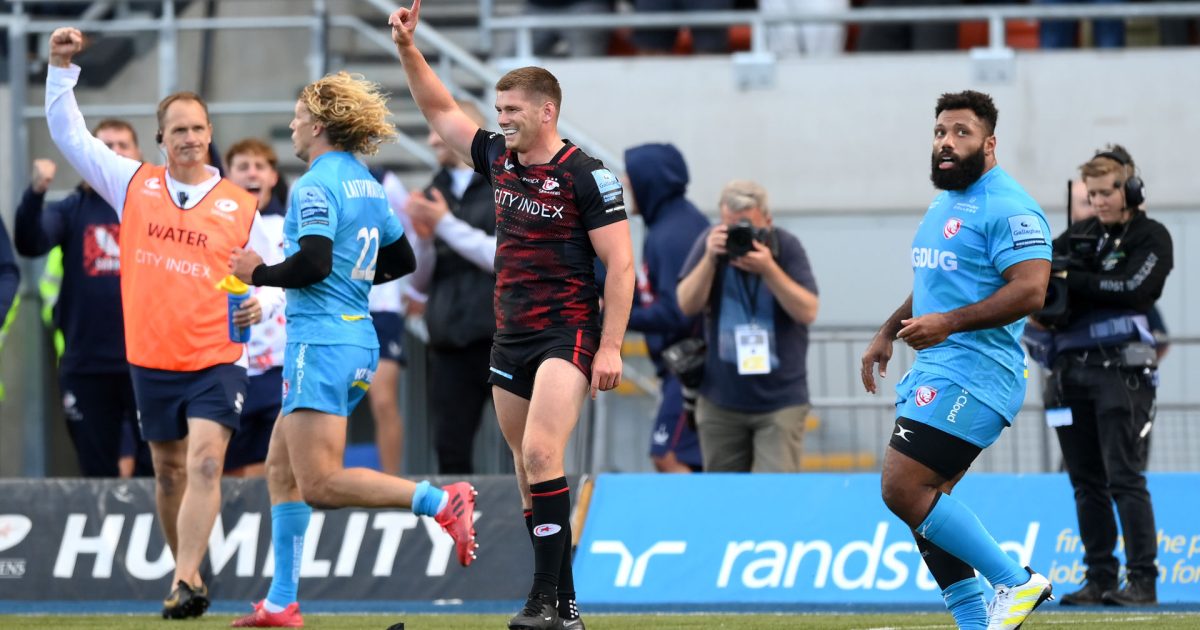Ice-cold Owen Farrell slots winner as Saracens edge Gloucester in thriller

Owen Farrell landed a match-winning conversion in the final act of a roller-coaster Gallagher Premiership clash that saw Saracens edge Gloucester 41-39 at StoneX Stadium.
Two tries in five minutes from replacement hooker Tom Woolstencroft, the second scored on the stroke of full-time, rescued Saracens on an afternoon when they appeared to have blown a 10-point lead.
It still needed a nerveless kick five metres in from the touchline by Farrell to seal victory and the England fly-half duly delivered.
The game was dominated by the maul as first Gloucester and then Saracens used it as a weapon that seemed beyond both teams to defend adequately.
Four of Gloucester’s five tries amid a fightback of their own came as a result of their pack driving forwards on a chastening afternoon for last season’s runners-up, who then responded by using the same method to claim their last three touchdowns.
Saracens showed resilience and flair to defeat Harlequins 30-27 a week earlier and the willingness to attack seen against their London rivals was again evident early on.
Until the need to deal with Gloucester’s maul took hold, they played with tempo and precision and Farrell was influential in the opening moments as his handling helped create a large overlap that gave Max Malins an easy run in.
Gloucester showed impressive powers of recovery, quickly overcoming the shock of conceding so early to launch a sustained attack that ended when Val Rapava-Ruskin forced his way over from close range.
The try had come at a cost, however, because during its build-up wing Ollie Thorley was forced off following a thunderous hit from Mako Vunipola.
For all the visitors’ resistance, Saracens were attacking with speed and precision and when Farrell released Elliot Daly the England full-back’s pace swept him clear with Ben Earl finishing.
But leading 20-10, they cracked again on the stroke of half-time when a line-out maul arrowed infield with number eight Albert Tuisue the scorer.
And it was another impressive maul that proved Saracens’ undoing four minutes into the second half as defenders were sucked in to enable Louis Rees-Zammit and Adam Hastings to send Chris Harris over.
By the 46th minute a 10-point deficit had become a 29-20 lead and this time Hastings was the scorer, showing strength and dexterity to ride a double tackle and touch down.
Gloucester reverted to the maul for their fifth try and even they must have been surprised at the opposition pack melting away to offer Rapava-Ruskin an easy run in.
Saracens turned to the line-out drive themselves for Josh Hallett to score but Hastings landed a long-range penalty to create a 12-point cushion with 10 minutes to play.
And yet again it was the forwards operating off the set-piece that kept the home side in the hunt for an unlikely win with Woolstencroft emerging from the pile of bodies.
The result came when Woolstencroft claimed his second to give Farrell the decisive moment.


































